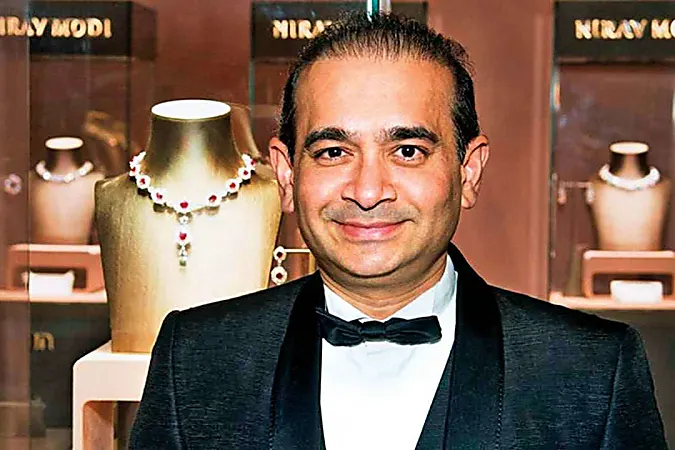Saturday 28 July 2018
Monday 23 July 2018
http://www.dnaindia.com/business/report-dna-money-exclusive-infosys-icici-tcs-among-top-firms-failing-to-spend-2-profit-on-corporate-social-responsibility-2640893
Infosys, ICICI, TCS among top firms failing to spend 2% profit on tocorporate social responsibility
Anjul Tomar | Updated: Jul 24, 2018, 05:00 AM IST

State-owned Oil and Natural Gas Corporation (ONGC), IT giants Tata Consultancy Services (TCS) and Infosys, lenders ICICI Bank, Axis Bank, HDFC Bank and HDFC, and telecom major Bharti Airtel are among top companies that have not spent 2% of their profits on social welfare activities.
As per as per the provisions (section 135) of the Companies Act, all the firms having net worth of Rs 500 crore or more, or a turnover of Rs 1,000 crore or more, or a net profit of Rs 5 crore or more have to spend 2% of their profit on the Corporate Social Responsibility (CSR) every financial year.
Among top-100 companies which have spent less than half of the funds earmarked for CSR during financial year (FY) 2015-16 are Bharti Airtel (22%), Idea (33%), Hindustan Zinc (37%), BHEL (41.8%) and Cairn India (48%), as per the documents seen by DNA Money.
The zero spenders during this period include Essar Steel, Alok Industries, Micromax and DLF Commercial Developers.
About Rs 13,828 crore was spent by over 19,000 companies during FY16. In the subsequent year, only Rs 4,719 crore was spent by 6,286 companies. Over 9,200 eligible companies did not spend a single penny on CSR during FY16 as compared to 346 firms in FY17.
The government has "issued scrutiny letters to about top 1,000 companies for non-compliance of the CSR law during FY16. Next step is to send show-cause notices before court cases are filed against violators," a senior official from the Ministry of Corporate Affairs (MCA) told DNA Money.
This is part of the first-ever strict compliance of the CSR law, four years after it was implemented in April 2014. There are 3,380 companies which spent less than the prescribed limit during 2015-16, while 1,633 firms spent more than the prescribed limit.
"The government will soon start taking action against the CSR violations committed in FY17 also," sources said. So far, the companies have provided financial statement and CSR figures till 2016-17 only.

During 2016-17, ICICI Bank, HDFC, Axis Bank, YES Bank, IndusInd Bank, Kotak Mahindra Bank and Volkswagen were among some 3,700 companies which failed to spend entire 2% of their profits on social welfare activities, as per government records.
"If the companies are found to be in violation of the provisions of the CSR law, they will have to face court prosecutions," said a senior government official, adding that the ministry has decided to make the compliance of the law strict, as a large number of companies were found to have not spent enough on social welfare as expected.
So far, "the soft approach adopted by the government to encourage companies to carry out social welfare activities allowed the companies to get away with even less CSR expenditure. In the first year (2014-15) of implementation of CSR law, the government approved action against only those companies which failed to disclose in their annual report reasons for not spending on the CSR. But the ministry plans to now refer all the cases of non-compliance to the court and let it decide on it," said another official.
However, sources point out that the government may seek legal opinion before filing prosecutions as one of the Frequently Asked Questions (FAQs) issued by it earlier said, "Board can decide whether any unspent amount from out of the minimum required CSR expenditure is to be carried forward to the next year."
In the cases of CSR violations during 2015-18, the government is also mulling asking companies to deposit the unspent money in the government fund, sources said. However, for future purpose, merely giving an explanation for not undertaking expenditure on CSR would no longer qualify as compliance of the law, sources added.
The companies can spend CSR funds in about 10 areas that include poverty eradication, preventive healthcare, sanitation, safe drinking water, education, gender equality, environmental sustainability and protection of national heritage.
Reactions so far:
HDFC: "Due to HDFC's shareholding pattern, the company was classified as a 'foreign source' under the Foreign Contribution Regulation Act (FCRA). Consequently, any contribution made by the company towards a grant or donation to a non-profit organisation was considered a foreign contribution. This restricted HDFC from providing grants to several NGO partners in FY2015-16."
Airtel: "Bharti Airtel has been scaling up CSR activities in areas prescribed in the CSR policy and spends have increased year on year. The company continues to undertake various CSR initiatives and play its part as a responsible corporate."
DLF: "The CSR contribution amounting to about Rs 3.85 crore could not be spent by DLF Commercial Developers Ltd and DLF Info City Developers as these entities were evaluating suitable CSR Projects."
DNA Money reached out to companies for their comment and reactions were awaited till the time of going to press.

Saturday 14 July 2018
DON'T BE A KALINIC
"Croatia came to this World Cup with only two natural strikers. Mario Mandzukic, the guy who scored the winner goal in the match against England.
The other was Nikola Kalinic. He was on the bench for Croatia's first game against Nigeria. With five minutes to end that game, the coach instructed him to dress up and replace another player.
Kalinic angrily refused to play, in protest of being left on the bench.
He saw himself a top player, and wouldn't come on for just five minutes. The coach turned to another player Pjaca for the substitution.
After the match, Kalinic refused to apologize, despite appeals from other coaching staff.
The coach then sacked him from the team, and sent him home from Russia. Kalinic flew for holidays, and even posted pictures of himself enjoying elsewhere.
After all, he seemed to imagine, Croatia won't go anywhere in the tournament. But without him, the team managed to win their matches.
Croatia has achieved their greatest football achievement in history, reaching the World Cup final.
The remaining 22 players are national heroes. Their names would forever be inscribed in the hearts of generations.
Kalinic should have been part of this glory but is now a butt of ridicule all because of minutes of anger, minutes of pride and bloated ego.
He may have regretted now. He may have realized his tomfoolery. But it is too late. These stories about life are quite familiar to us, but do we really learn lessons from them? Are they profoundly applied to all spheres of life?
Learn to CUT PRIDE. Learn to control anger and DEFLATE EGO and ultimately, learn to say SORRY.
*Years of SWEAT and DEDICATION can all be shattered by moments of ANGER and PRIDE. DON'T BE A KALINIC.."
The other was Nikola Kalinic. He was on the bench for Croatia's first game against Nigeria. With five minutes to end that game, the coach instructed him to dress up and replace another player.
Kalinic angrily refused to play, in protest of being left on the bench.
He saw himself a top player, and wouldn't come on for just five minutes. The coach turned to another player Pjaca for the substitution.
After the match, Kalinic refused to apologize, despite appeals from other coaching staff.
The coach then sacked him from the team, and sent him home from Russia. Kalinic flew for holidays, and even posted pictures of himself enjoying elsewhere.
After all, he seemed to imagine, Croatia won't go anywhere in the tournament. But without him, the team managed to win their matches.
Croatia has achieved their greatest football achievement in history, reaching the World Cup final.
The remaining 22 players are national heroes. Their names would forever be inscribed in the hearts of generations.
Kalinic should have been part of this glory but is now a butt of ridicule all because of minutes of anger, minutes of pride and bloated ego.
He may have regretted now. He may have realized his tomfoolery. But it is too late. These stories about life are quite familiar to us, but do we really learn lessons from them? Are they profoundly applied to all spheres of life?
Learn to CUT PRIDE. Learn to control anger and DEFLATE EGO and ultimately, learn to say SORRY.
*Years of SWEAT and DEDICATION can all be shattered by moments of ANGER and PRIDE. DON'T BE A KALINIC.."
Tuesday 10 July 2018
AFTER ALL, WHAT ARE FRIENDS FOR...Modi Govt has reportedly donated a sum of Rs 1000 stores to this Institute NB on paper
Given Tag of 'Eminence' by Modi Govt, Reliance's Jio Institute Doesn't Even Exist Yet
The only public information about the Jio Institute, now one of six 'institutions of eminence', is a speech by Nita Ambani where she said it would be "a university from the gates of which will emerge our future leaders, musicians, scientists, and Olympians."

File photo of Prime Minister Narendra Modi and Reliance Industries chair Mukesh Ambani. Credit: narendramodi.in
7.7K
interactions
New Delhi: The news of a Reliance-promoted educational venture – about which there is no information in the public domain – getting clubbed together with the Indian Institute of Science and the IITs of Delhi and Bombay as ‘institutions of eminence’ was astonishing by any yardstick, and true to the Modi government’s style of doing business, was broken on Twitter by HRD minister Prakash Javadekar on Monday afternoon.

While the IISc and the two IITs have a stellar reputation and BITS Pilani and the Manipal Academy of Higher Education have a solid track record as teaching institutions, the selection of Jio Institute – a project of Nita Ambani’s Reliance Foundation – raised eyebrows all around as it has not even been established yet.
Its inclusion in the list of six institutions of eminence selected from among dozens of applicants has prompted accusations of cronyism, given the proximity of Reliance Industries and its promoter, Mukesh Ambani, to Prime Minister Narendra Modi.
The institute’s name ‘Jio’ connects it to Reliance’s mobile telephony business, which itself was launched in an unprecedented manner with Modi’s face used prominently by the company in its advertising despite government rules prohibiting this.
The only information publicly available about Indian education’s latest institution of eminence comes from remarks Nita Ambani made at a media event in March 2018, where she spoke about the Reliance Foundation’s plans to establish a world class university:
“A university at the cutting edge of research and innovation. A university that focuses on education and sports, art and culture,” she said without giving a timeline for setting up of the institution.The university, she said, will collaborate with the top universities around the world and prepare future generations to face the world, with knowledge and skills.“A university from the gates of which will emerge our future leaders, our musicians, our scientists, and our Olympians,” she said. “Building such a university is our dream at Reliance Foundation.”
The selection of Jio and the other institutions of eminence was made by an empowered expert committee (EEC) set up by the University Grants Commission under the UGC (World Class Institutions Deemed to be Universities) Regulations, 2016.
The EEC is headed by N. Gopalaswami, a former chief election commissioner who is now head of the RSS-affiliated Vivekananda Educational Society. Its other members are Renu Khator, chancellor of the University of Houston, management professor Tarun Khanna of Harvard University and Pritam Singh, a former director of IIM, Lucknow. Their names were chosen by the HRD ministry and ratified by the appointments committee of the cabinet headed by Modi.
The rules allowed for existing government and private universities and institutes to apply. The UGC also also provided for promoters to submit a “completely new proposal to establish a World Class Institution Deemed to be University.” It was under this provision that Reliance applied and got selected.
The committee chose to ignore the National Institutional Ranking Framework’s scores, according to which Manipal and BITS Pilani came in at 18 and 26 respectively. Though the IISc topped the NIRF chart and the two IITs chosen as institutes of eminence were ranked 3 and 4, the exclusion of a host of other top scoring public and private universities is likely to generate heartburn.
Any institution selected has 10 years to make it to the top 500 ranking of world universities.
The UGC’s rules for applying stipulated that “the Sponsoring Organisation should have identified the first Chancellor and first Vice-Chancellor and the core team who will implement the work of setting up the World Class Institution Deemed to be University. All of them should have very high qualifications and wide experience.”
So far, nothing is known about Jio Institute’s chancellor, vice chancellor and the other team members with “very high qualifications”.
On Twitter, Ayesha Kidwai, who teaches linguistics at Jawaharlal Nehru University joked that the HRD ministry had run into ‘spell check issues’, confusing eminence with imminence:
On a more serious note, she told PTI, “[Jio Institute] doesn’t have a campus, a website or any alumni and it has left behind prominent IITs as well as private players like Ashoka University and OP Jindal Global University. It is yet to be established but will already be marketed as a world class institution by the government. Can’t we see the conflict of interest?”.
Hariprasad KM from IISc-Bangalore, which was also accorded the “Institute of Eminence” (IoE) tag, wondered how the decision was taken.
Responding to these and other questions, the UGC issued a statement Monday night defending the selection of Jio Institute, noting that the rules themselves envisaged greenfield projects:

The institutions of eminence (IoE) scheme of the Human Resource Development (HRD) Ministry was originally intended to lead to the selection of 10 public and 10 private universities that would enjoy complete academic and administrative autonomy. While the government-owned institutions would each be eligible for grants of up to Rs 1000 crore over a five year period, the private IoEs would not be entitled to these grants. However, they would be able to apply for special research funding from the government.
Curiously, the EEC said it found that only six institutions showed the potential to find a place among the top 500 global universities.
Explaining the rationale for creating IoEs, Javadekar tweeted, “We have 800 univ, but not a single university in top 100 or even 200 in the world ranking. Today’s decision will help achieve this. Improving ranking needs sustained planning, complete freedom & public institutes getting public funding.”
Note: The earlier version of this article referred to the universities as ‘institutions of excellence’. The government’s terminology is ‘institutions of eminence’.
Join The Discussion
Total Comments (1)
The Spirit of Being Young
At a time when both public and private universities are facing varied challenges, what does it mean for a young mind to come to a college, and see the dynamics of life, politics, education and careers?

To be young is to resist the principle of domination. Credit: PTI
All of us got more or less, what we wanted,
all except Amalkanti –
who used to think so much about sunlight
that he wanted to become sunlight.∼ From a Bengali poem by Nirendranath Chakraborty
all except Amalkanti –
who used to think so much about sunlight
that he wanted to become sunlight.∼ From a Bengali poem by Nirendranath Chakraborty
As the new academic session is about to begin, the youngsters – after passing through a faulty pattern of evaluation quantifying academic achievements through abstracted numbers and pedagogically irrelevant ‘cut-offs’ – will begin a new journey. What does this transition mean – from the protected and ‘disciplined’ spaces of families and schools to colleges and universities filled with a mix of ‘freedom’, higher level of learning and aspirations/anxieties associated with adulthood?
At a time when Indian society is passing through a rapid transformation because of market-induced desires, aspirational/restless middle-class normalising the doctrine of the ‘survival of the fittest’, massive commodification of education and turbulent politics, is it possible for the young minds to feel college life as a liberating experience?
As a teacher continually interacting with young minds, I feel that there are two issues that need to be addressed to understand the fate of the young in the domain of higher education.
Beyond the regimentation of discipline and other-directed excitement
As my memory takes me back to my college days, I understand with absolute empathy the challenge of freedom the youngsters would be confronting. I recall a friend of mine who was a ‘disciplined’/’good boy’ from one of the leading Ramakrishna Mission schools in West Bengal –known for its ‘moral education’ and ‘disciplined’ living (with a meticulously structured timetable) under the constant supervision of the monks.
Yet, with his entry into Presidency University in Kolkata – known for its intellectual vibrancy, radical politics and relatively relaxed mixing of boys and girls – the structures of his earlier ‘disciplined’ self began to collapse. He began to bunk classes, drink heavily and often justify this act by arguing that even a veteran filmmaker like Ritwik Ghatak was anarchic and alcoholic. As I see, his earlier ‘discipline’ was based on fear and regimentation; never did it become his inner music, the very rhythm of his conscience; and his new ‘freedom’ in the college was also shallow and imitative – the return of the repressed, and complete lack of control over the movement of life in the absence of stern headmasters.
I feel that even today for many youngsters, life at colleges poses a similar challenge. It is at this juncture that they are endowed with an existential riddle – how to see beyond the chains of regimented discipline and irresponsible freedom, and how to experience the depths of freedom as a reflexive quest and a continual dialogue with the self and the world.
In fact, it is in the domain of human relationships that this freedom ought to manifest itself. Even though there is a Bollywood image (the Karan Johar variety) of the college as a space of instant romance, dance, music and picnic parties, the fact is that it is a complex domain – you experience heterogeneity, you feel more strongly the meaning of engaging with the opposite sex as friends/colleagues/co-travellers, you find teachers of a different kind and new academic challenges, you find the library, the cafeteria and the theatre/film club as sites of experimentation and new relationships.
The art of living in this new domain – distinctively different from the protective context of the family and the rigid structures of school life – requires the cultivation of freedom: the freedom to understand others without objectifying/stereotyping them, the freedom to retain the beauty of symmetrical gender relationships, the freedom to relate to teachers as dialogic partners, and above all, the freedom to retain the grace of life.
However, the obstacles are enormous, and freedom is never an easy proposition. Even in ‘good’ colleges, privileged youngsters tend to stigmatise others on the basis of caste, ethnicity, look, accent, and English. As the contemptuous expressions like ‘chinki’ or ‘bahenji’ reveal. Likewise, in a media-induced/other-directed world, it becomes exceedingly difficult to retain the faith in one’s uniqueness; the constant pressure to look like others, or to follow the dominant imagery associated with an institution (say, Fabindia if you are at Lady Shri Ram College) diminishes the spirit of freedom. Is it this reason that at times a college looks like a site of what David Riesman regarded as ‘other-directed’ personalities, and heavily ‘sponsored’ gorgeous college festivals are filled with standardised pop culture industry?
Moreover, when you attend classes only for getting ‘notes’ or for fear of the rule of mandatory attendance, you do not realise the freedom of being a vibrant learner celebrating joyful learning as an intense engagement with the teachers. At a time when the aggression inherent in consumer culture reduces every experience into an object for instant consumption, the ‘having orientation’, to use Erich Fromm’s language, disrupts the rhythm of human relationships; even ‘falling in love’, as canteen/hostel gossips in a college would suggest, becomes a matter of prestige, an exercise of possession, or a demonstrative Valentine’s Day spectacle.
That is why, as youngsters enter college they are bound to grow up with these challenges emanating from the dialectical interplay of positive life-energy and temporal excitements, engaged learning and strategic formula for success, love and desire, and authentic self-quest and the lure of fashion. The spirit of being young is to undergo this complex journey.
Job seekers, scholars and awakened citizens
This is also the time to think of careers, and it is, therefore, not surprising that one begins to see oneself as a job seeker. While its importance can by no means be denied, the problem arises when one sees education only through the angle of what private universities and technical institutions regard as ‘placement’ and ‘salary package’. This obsessively instrumental approach – quite popular among the aspiring middle-class in the hyper-competitive neo-liberal market – diminishes all noble aspirations, utopias and dreams associated with the youthfulness of being.
Poetry dies, good cinema disappears and the urge to read the good stuff outside course material is ruthlessly repressed. These job seekers fail to evolve a positive orientation to meaningful education – say, the way a student of history reads Fernand Braudel and Eric Hobsbawm, and feels immensely excited about it, or the way a student of physics, despite intense engagement with lab work, manages time to visit the library and issue the works of Fyodor Dostoevsky and Hermann Hesse. It is sad if the spirit of creative and intellectual adventure disappears from the life of a college/university student, and he/she dreams of becoming merely an employee of a multinational corporation.
While job seekers become dull, routinised and superficially smart at a time when there ought to be the flowering of youthfulness, even ‘good students’ – the ones who attend classes, follow the teacher’s instructions and do well in tutorials and assignments – can become instrumental in another way. For them, a scholarship is also a kind of fetish, a sort of ‘cultural capital’, or yet another calculated move for getting a scholarship abroad. No wonder, they hate politics; they hate all sorts of ‘diversions’. Possibly, many ‘sanitised’ private universities and elite colleges promote this ‘politics-free’ environment; and at the same time, politically troubled public universities are condemned by the media and over-protective guardians.
True, there is reason to be worried when campus politics is lumpenised, and ‘big’ parties use the young for their partisan goals. However, the answer is not an escape from the larger societal issues; the answer is not naked careerism (‘bourgeois’ in aspirations, ‘subaltern’ in historiography) in the name of scholarship; possibly, the answer is life-affirming/positive politics – the politics that transforms a scholar into what Antonio Gramsci would have regarded as an ‘organic intellectual’, the politics that awakens human sensibilities and makes one an active participant in the shared public domain.
The irony is that neo-liberal rationality seeks to privatise public issues (for instance, you need not bother about the supply of safe drinking water, buy mineral water instead, don’t raise an issue regarding public transportation, use your smartphone to hire an Ola/Uber service) instead, and new technological gadgets further intensify the degree of atomisation. The ethos of alternative politics as a mode of ‘counter-culture’ ought to resist this atomising tendency – the culture of narcissism. Who can do it better than the youth? To be young is to relate. To be young is to love. To be young is to resist the principle of domination.
Is it possible for the college-going generation to redefine itself as blooming flowers – not merely as calculative job seekers or intellectually burdened narcissistic scholars?
Avijit Pathak is a Professor of Sociology at Jawaharlal Nehru University, Delhi.
Join The Discussion
Subscribe to:
Posts (Atom)


















